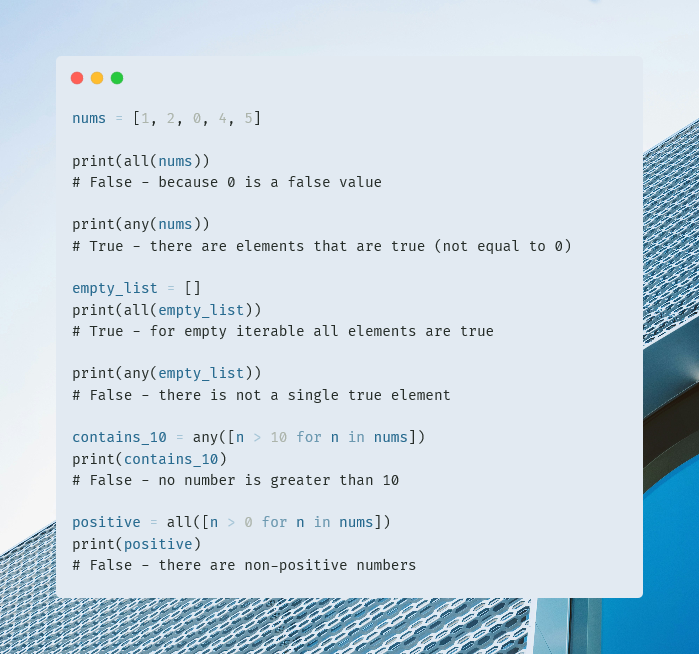Logical all and any
Built-in functions all() and any() are applied to sequences (lists, tuples, etc.) and return a bool value.
all(iterable) — returns True if all elements in iterable are true (or if iterable is empty). any(iterable) — returns True if at least one element in iterable is true.
These functions can be used to check certain conditions across an entire dataset. For example, to check if all numbers are greater than zero, or if at least one number is greater than 10.
Important points:
- For empty iterables,
all()will return True, whileany()will return False. - An element is considered false if its
bool()equals False. - The functions stop at the first false element (for
all) or first true element (forany).
nums = [1, 2, 0, 4, 5]
print(all(nums))
# False - because 0 is a false value
print(any(nums))
# True - there are elements that are true (not equal to 0)
empty_list = []
print(all(empty_list))
# True - for empty iterable all elements are true
print(any(empty_list))
# False - there is not a single true element
contains_10 = any([n > 10 for n in nums])
print(contains_10)
# False - no number is greater than 10
positive = all([n > 0 for n in nums])
print(positive)
# False - there are non-positive numbers
Page of .
Leave a comment
You must be logged in to leave a comment.
Log in
to join the discussion.


Comments (0)